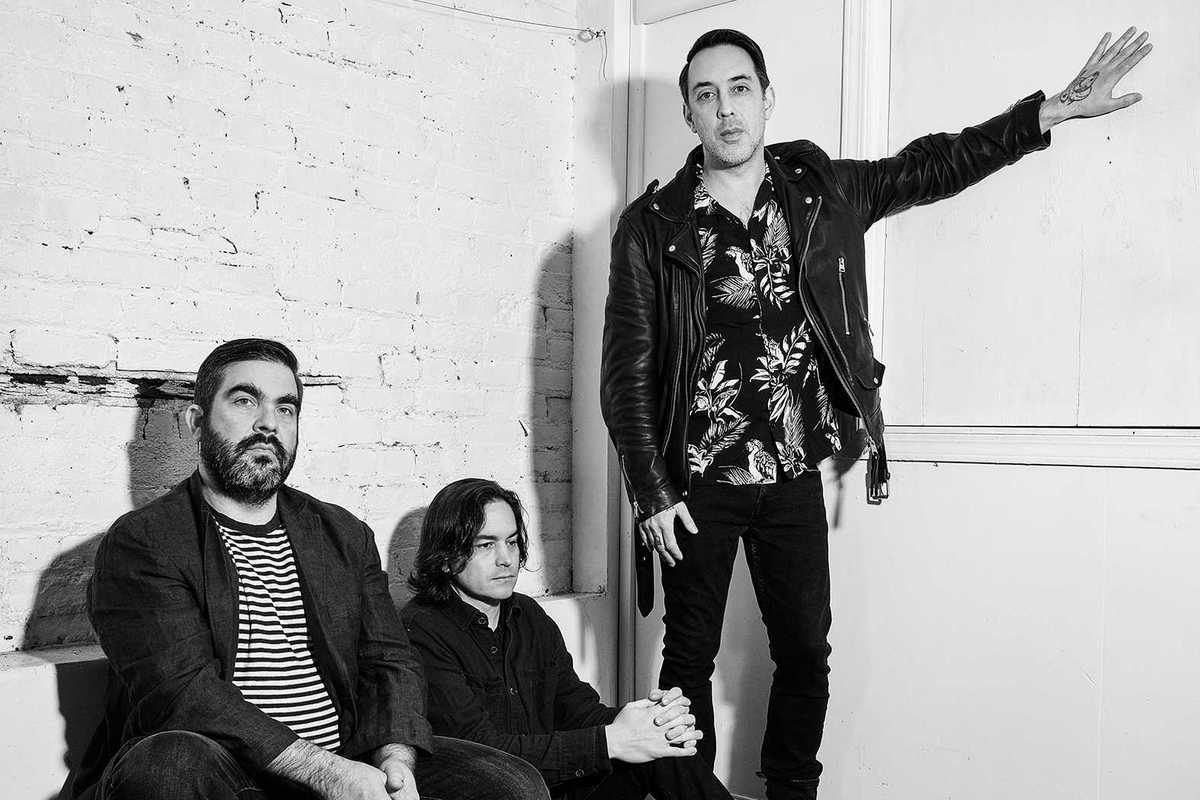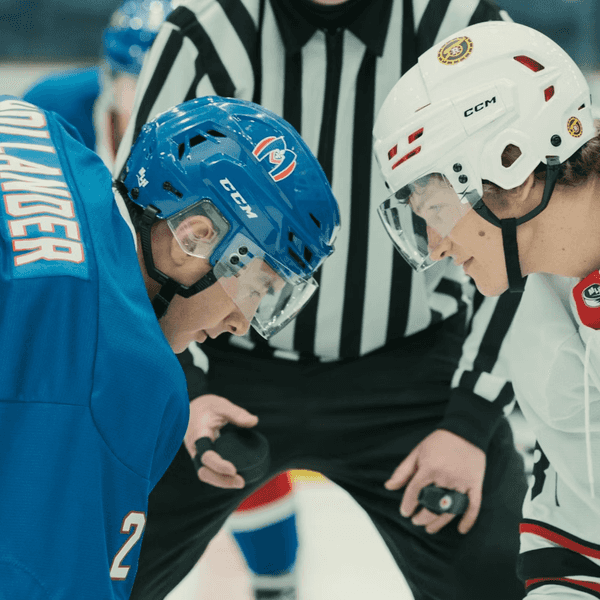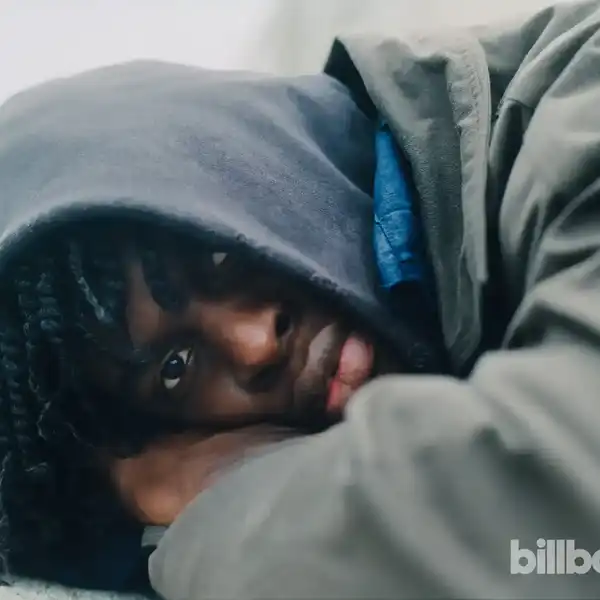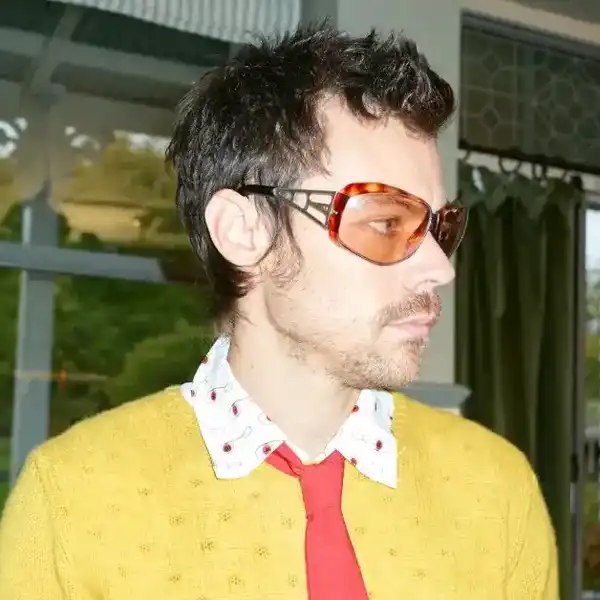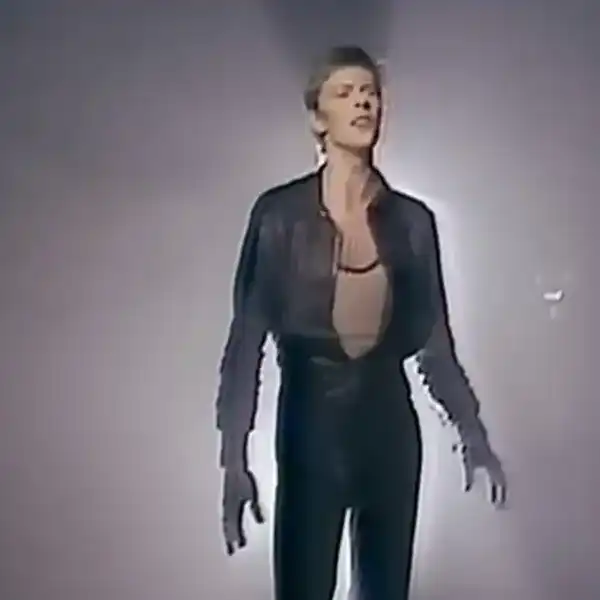Five Questions With… Acid Test
Twenty-five years ago, this Toronto band made a real mark on the Canadian alt-rock scene but quickly flamed out. They've now returned, genre-bending swagger intact, with a new EP set for release next month. Learn more here.

By Jason Schneider
Twenty-five years after their major label debut album Drop, Toronto alt-rockers Acid Test—vocalist/bassist Lucy Di Santo, guitarist Steve Fall, keyboardist/producer Adam (Atom) Percy and new drummer Tim van de Ven—are returning with a new six-song EP entitled Jus’ Rite, out April 27. The band recently released a video for the first single “Slipping Away,” showing that they haven’t lost any of their genre-bending swagger.
Having made an indelible mark with the track “Mr. Skin,” featured in Bruce McDonald’s classic film Highway 61, Acid Test, Acid Test was on the cutting edge in blending industrial hard rock with techno and traces of ‘70s funk in Canada, leading them to share stages with fellow iconoclasts such as Nine Inch Nails, Grace Jones and the Sugarcubes.
But, after flaming out in 1994, the members went on to other projects and life pursuits, until five years ago, when the prospect of making music together again became a real possibility. With a renewed sense of purpose and the creative energy they experienced in recording the new EP, the members of Acid Test are excited by what lies ahead, including the opportunity to reconnect with their fans and lure new ones into the fold.
Acid Test will launch Jus’ Rite at The Garrison in Toronto on April 28. For more info go to acidtestmusic.com
What was the catalyst for the band to start working again?
Steve Fall: Well, a big part of that was losing Mike Harland, aka DJ Jus’ Rite, in 2012. It was his desire for the band to come back, and he was pretty much leading the charge for that to happen before he passed. The morning after Mike died, Atom had the burden of contacting me; he had said our band photo had made the news and not in a positive way. After that, we wanted to try and write a new story for Mike, as well as for our fans, and naming the new EP Jus’ Rite is our way of honouring him.
How do you describe the creative vision you had for these new songs?
Atom Percy: I’d say they were founded on the idea of picking up where we left off, but also applying everything we’ve learned since then. While it's tricky to record remotely—we’re all in different provinces now—it was also exciting because you never knew what another member was going to add until you opened your email the next day. And oddly, that snowball effect seemed to come through for us. Overall, our vision for this was focused on getting a lot of things off our chest after the last 25 odd years, filling in the missing time between then and now, and putting those things down as well-written and interesting songs that we could be proud of, that also sound modern and relevant.
Further to that, you’ve said the band’s approach now has a lot to do with life experience and lessons learned. What are some of those lessons?
Lucy Di Santo: Writing music, and writing in general is, for me, a reflection and an accounting of what is transpiring in one’s current physical, emotional and spiritual life. So, what we wrote in our late teens and early twenties, which was when we were last together as Acid Test, involved a lot of future hopes, emerging adult ideas and fantasies, as well as just plain early life experiences. The incremental growth that has occurred for all of us since then is what this record represents. And that includes the experience of one of us passing in his late thirties.
Looking back, what comes across strongest is a theme of “escape” that served as a glorified state for me at that age—and continued through many experiences involving illness, losses of every kind, shattered dreams and eventually recovery. Now, I think the themes are acceptance and serenity. Our music today is a recounting of these life experiences, with the difference being that there’s a resolution. The need to “fit in” and gain approval almost becomes secondary. Life becomes about knowledge and acceptance that things are exactly as they are supposed to be. That may sound existential or philosophical, but the music has now become a means of transmitting and communicating all those themes.
What’s your best touring story?
Steve Fall: We were on an overnight drive somewhere in Nevada in the early ‘90s. I woke up to discover the crew had made a wrong turn and we were suddenly driving on a dirt road. We were also running on fumes, but by some miracle we made it to an old Texaco station. As everyone went exploring for smokes and junk food I decided to check out a big pile of old abandoned cars behind the station.
As I’m leaning against the wall, DJ Jus’ Rite finds me and gives me a look of pure horror. We were all pretty tired, so I start telling Mike I’m not in the mood for jokes, but his expression didn’t change. He finally says, “Dude, I’m going to reach over and grab your shoulder, and I want you to turn to your left—now!” I still wasn’t buying it, because Mike was always joking around, but after we grabbed a flashlight from the van, we went back to where I was standing, and there was a black widow nest in a hole in the wall. That thing was coming for me but had retreated back into its nest, waiting for another lost band that needed fuel. I owed Mike my per diem that evening because he kept insisting he saved my life. It definitely would have sucked being bit by a black widow in the middle of nowhere!
If you could fix anything about the music business, what would it be?
Tim van de Ven: I’d say, to start with, music education at the Secondary School level. Although great organizations like MusiCounts exist, our music programs need more mentors and more money, or at the very least, access to better equipment. Bands like ours could be at high schools to perform, talk, and foster musical growth and provide inspiration to the next generation.
I would also like to see an improved quality of life for women in the industry. It is still very male-dominated, and that is an issue that I hear about, and have witnessed, from many of my musical friends and colleagues. Women need to have an equal say and a fair chance. Finally, better access to touring grants. Canada is a massive country, and it’s always been hard to tour. Expanded financial assistance would mean more bands could be touring more often.

